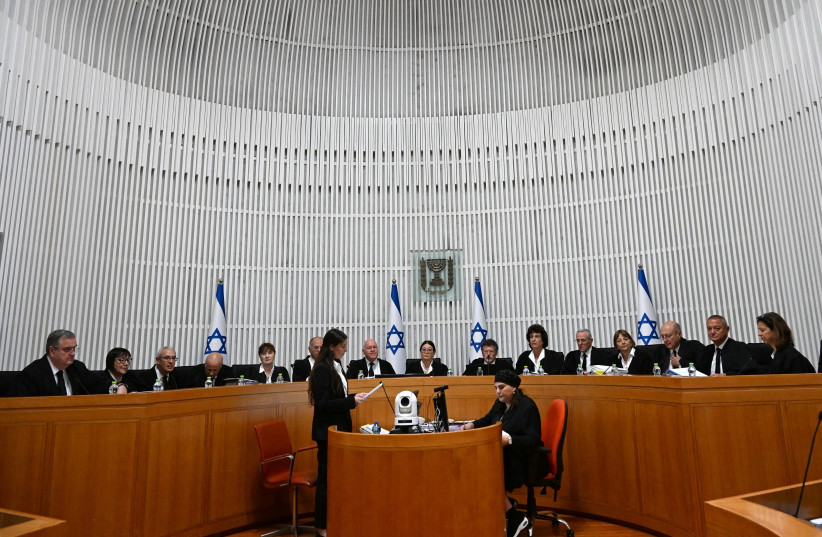The High Court of Justice published a significant judgment on January 1. The judgment reinstates the High Court’s own ability to strike down unreasonable government decisions. This was after the Knesset passed an amendment to a so-called Basic Law in 2023 that tried to remove the High Court’s authority to strike down unreasonable government decisions, and even unreasonable Knesset laws, based on the “reasonableness test.”
Here's some context
History: Unlike other ex-British-ruled territories, Israel lacks a full constitution, but it has a limited patchwork of basic laws. The “reasonableness test” was developed in the 1990s by the Supreme Court under the presidency of justice Aharon Barak.
The reasonableness test provides Israel with a general system of checks and balances. The reasonableness test also provides Israel with separation of powers between the Knesset as the lawmaker, the government as the executive body, and the judiciary, which tells us what the law says.
How might the reasonableness test affect Israelis?
Without the reasonableness test, imagine a Knesset or a government being free to adopt unreasonable decisions regarding matters such as taxation, tax procedures, spending, borrowing, printing money, denial of patent rights, religious edicts, military campaigns, and even cancellation or postponement of elections.

The potential denial of patent rights and other intellectual-property rights resulted in a reduction in Israel’s tech sector in 2023 and downgrading of Israel’s credit rating. And Israelis serving in the IDF were concerned they might face arrest abroad if alleged IDF issues cannot be investigated by an impartial, independent Israeli judiciary.
The judgment: All 15 Supreme Court justices penned their own verdict in the opinion. At the beginning is a passage summing up the 15 verdicts. Of the 15 judges, eight supported reinstating the reasonableness test, and 12 said a Basic Law may indeed be overturned. Until then, nobody knew if all this was possible.
Here's why it happened
The rationale for the court’s decision: The judgment says the requirement for democracy in the Declaration of Independence necessitates: (1) Separation of powers; (2) Rule of law; (3) Integrity of state administration; (4) No plundering of state resources; (5) Relief against abuse for the man in the street; (6) independent judiciary (7) Judicial review.
What the declaration of independence says: “THE STATE OF ISRAEL… will be based on freedom, justice and peace as envisaged by the prophets of Israel; it will ensure complete equality of social and political rights to all its inhabitants irrespective of religion, race or sex; it will guarantee freedom of religion, conscience, language, education and culture; it will safeguard the Holy Places of all religions; and it will be faithful to the principles of the Charter of the United Nations”
What the UN Charter says: The UN Charter starts by saying its purpose is: “To maintain international peace and security, and to that end: to take effective collective measures for the prevention and removal of threats to the peace, and for the suppression of acts of aggression or other breaches of the peace, and to bring about by peaceful means, and in conformity with the principles of justice and international law, adjustment or settlement of international disputes or situations which might lead to a breach of the peace.” In short: the UN Charter calls for peace and justice.
Consequences: The High Court’s decision is undoubtedly serious, and reactions have been for and against it. But there is a general feeling among Israelis that first, the war with Hamas must be fought; then the day after must be faced. It will be a busy day after, with many things on the agenda: investigating what went wrong, rebuilding Israel, rebuilding the Middle East, fixing the Israeli judicial system, fixing the Israeli tech sector, and paying for it all. That’s a lot of history in the making.
leon@hcat.co
The author is an Israeli citizen (and accountant) who has studied constitutional affairs.
